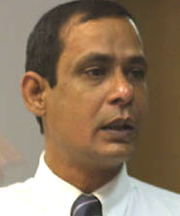
Indias rapidly growing economy has meant a shift in manufacturing jobs from the U.S. to countries such as India, where labor is cheaper, says a Notre Dame economist, who adds that, conversely, higher levels of disposable income for certain segments of the Indian population have led to an increased demand for goods and services provided by U.S.-based multinational corporations.
Further economic cooperation between theU.S.andIndiacan be potentially gainful to both countries,says Kali Rath, who specializes in welfare economics, industrial organization and game theory.Industries in theU.S.can reduce their costs and pass on the gains to the consumers, while inIndia, more job opportunities can be created.TheU.S.can reallocate its resources to the sunriseindustries – those using new technology – where it has a comparative advantage.
With a young population,Indias economy, which is now the second fastest-growing in the world, will continue to expand, unlike some other countries that are facing an aging population.Its economic advantages lie in the availability of cheap raw materials and vast pool of skilled and semi-skilled labor.
A large segment of the Indian population is familiar with English, which also has contributed to its economic growth,Rath said.These advantages have resulted inIndias ability to provide information technology services, research and development collaborations, and some manufacturing facilities.
TheU.S.isIndias largest trading partner, an alignment that provides botheconomic and strategic benefits with leverage againstChinaandPakistan, both nuclear powers. President Bushs recent, historic agreement with India Prime Minister Manmohan Singh not only will openIndias civilian nuclear program to international inspection, but also will allowU.S.firms to invest inIndias nuclear program.
* Contact: * Professor Kali Rath is available for interviews and can be reached at 574-631-7590 or Kali.P.Rath.1@nd.edu . The preceding comme _nts are for use in whole or part.
_
TopicID: 16163